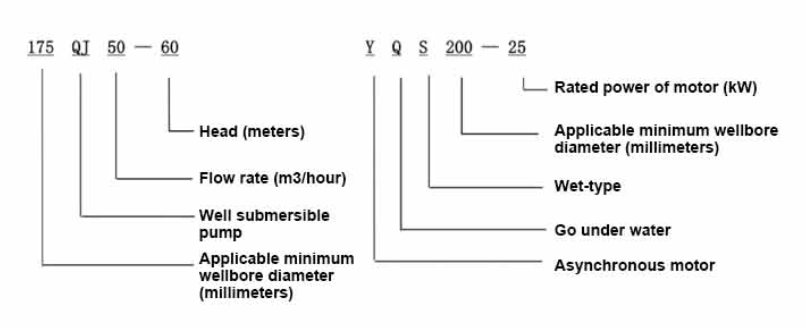Nov . 29, 2024 15:29 Back to list
Understanding the Function and Applications of Submersible Pumps in Various Industries
What is a Submersible Pump?
A submersible pump is a type of pump that operates while submerged underwater. Unlike conventional pumps that pull fluid from a well or reservoir, submersible pumps are designed to work beneath the surface, making them ideal for a variety of applications in both residential and industrial settings. This article will explore how submersible pumps work, their applications, advantages, and key considerations when selecting one for your needs.
How Submersible Pumps Operate
The fundamental operation of a submersible pump involves a sealed motor that is submerged in the fluid it is pumping. Its design includes a hermetically sealed assembly, which prevents water from entering and damaging the motor. When activated, the motor drives an impeller, which creates a pressure differential that pushes the fluid up and out through a discharge line.
Submersible pumps are typically powered by electricity, although some models may use alternative power sources. Their design enables them to handle various fluids, including clean water, wastewater, and even certain chemicals, depending on their construction materials.
Applications of Submersible Pumps
Submersible pumps are utilized in many environments and can serve a wide range of purposes
1. Groundwater Extraction They are commonly employed in agriculture for irrigation systems and in municipal applications for extracting groundwater.
2. Sewage and Wastewater Management Submersible sewage pumps are designed to handle effluent and wastewater, making them essential for drainage and septic systems.
3. Construction Sites These pumps can remove water accumulating at construction sites, which helps maintain a dry working environment.
4. Flood Control In times of heavy rainfall or flooding, submersible pumps can help mitigate water levels in basements, ditches, or flood-prone areas.
5. Aquaculture and Aquariums Submersible pumps are used to circulate water efficiently in various aquatic environments, ensuring proper aeration and filtration.
Advantages of Submersible Pumps
what is submersible pump

Submersible pumps offer several advantages that make them a popular choice
- Efficiency By pushing fluid to the surface rather than pulling, submersible pumps are often more energy-efficient than traditional pumps.
- Reduced Noise Their underwater operation reduces noise levels, making them an ideal choice for residential areas or quiet settings.
- Low Maintenance These pumps have fewer moving parts exposed to the elements, leading to lower maintenance requirements and increased operational lifespans.
- Space Saving Submersible pumps take up less space than above-ground alternatives, making them suitable for locations with limited accessibility.
Key Considerations When Choosing a Submersible Pump
When selecting a submersible pump, several factors should be regarded to ensure optimal performance
1. Type of Fluid Consider the nature of the fluid being pumped, including its temperature, viscosity, and whether it contains solids. This will dictate the pump’s material and design requirements.
2. Pump Size and Capacity Evaluate the required flow rate (measured in gallons per minute or liters per second) and head pressure (the height fluid needs to be pumped). This information will guide you in selecting the appropriate size and model.
3. Power Source Most submersible pumps are electric, but you may need to consider alternative power sources for remote areas or specific applications.
4. Durability Choose pumps made from corrosion-resistant materials, particularly if used in harsh environments or with abrasive fluids.
5. Installation Considerations Some submersible pumps are easier to install than others, so assess the installation process relative to your capabilities or those of your contractor.
In conclusion, submersible pumps are versatile, efficient, and effective solutions for a diversity of fluid management needs. By understanding their operating principles, applications, advantages, and critical selection criteria, you can make informed decisions about incorporating these pumps into your projects. Whether for residential, commercial, or industrial use, the right submersible pump can enhance efficiency and help meet your fluid management challenges.
-
Submersible Water Pump: The Efficient 'Power Pioneer' of the Underwater World
NewsJul.01,2025
-
Submersible Pond Pump: The Hidden Guardian of Water Landscape Ecology
NewsJul.01,2025
-
Stainless Well Pump: A Reliable and Durable Pumping Main Force
NewsJul.01,2025
-
Stainless Steel Submersible Pump: An Efficient and Versatile Tool for Underwater Operations
NewsJul.01,2025
-
Deep Well Submersible Pump: An Efficient 'Sucker' of Groundwater Sources
NewsJul.01,2025
-
Deep Water Well Pump: An Efficient 'Sucker' of Groundwater Sources
NewsJul.01,2025
-
 Submersible Water Pump: The Efficient 'Power Pioneer' of the Underwater WorldIn the field of hydraulic equipment, the Submersible Water Pump has become the core equipment for underwater operations and water resource transportation due to its unique design and excellent performance.Detail
Submersible Water Pump: The Efficient 'Power Pioneer' of the Underwater WorldIn the field of hydraulic equipment, the Submersible Water Pump has become the core equipment for underwater operations and water resource transportation due to its unique design and excellent performance.Detail -
 Submersible Pond Pump: The Hidden Guardian of Water Landscape EcologyIn courtyard landscapes, ecological ponds, and even small-scale water conservancy projects, there is a silent yet indispensable equipment - the Submersible Pond Pump.Detail
Submersible Pond Pump: The Hidden Guardian of Water Landscape EcologyIn courtyard landscapes, ecological ponds, and even small-scale water conservancy projects, there is a silent yet indispensable equipment - the Submersible Pond Pump.Detail -
 Stainless Well Pump: A Reliable and Durable Pumping Main ForceIn the field of water resource transportation, Stainless Well Pump has become the core equipment for various pumping scenarios with its excellent performance and reliable quality.Detail
Stainless Well Pump: A Reliable and Durable Pumping Main ForceIn the field of water resource transportation, Stainless Well Pump has become the core equipment for various pumping scenarios with its excellent performance and reliable quality.Detail
